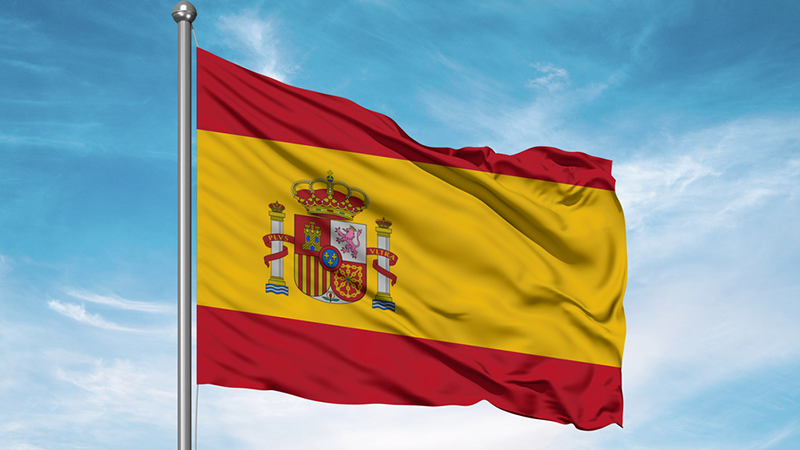Mercosur: Exploring Objectives, Challenges, and Future Prospects
Thirty-four years after its creation, Mercosur has consolidated an expanded market of more than 260 million people, with benefits that transcend...

Spain has become an increasingly attractive destination for international entrepreneurs, foreign companies, and business founders looking to expand into the European Union. With its strategic position between Europe and Latin America, a strong consumer spending market, and a dynamic business culture, the Spanish market offers multiple growth opportunities. However, conducting business in Spain requires a clear understanding of Spanish law, local tax obligations, and the business structures recognized by the Spanish government.
If you'd like to learn how to open a business in Spain, our advisors can guide you through the process.
Table of Contents
Economic Facts| Taxation | Corporate Taxes | Legal framework | Business Culture
International entrepreneurs should expect negotiations to include not only technical skills and business practices, but also personal qualities and connections with the Spanish people.
Strategic sectors such as technological innovation, construction, real estate, credit institutions, and professional activities continue to attract foreign investment. Consumer spending has shown resilience, while business growth is supported by the Spanish government’s policies aimed at protecting minority investors and fostering start-ups under the Spanish Start-Up Law.
.webp?width=196&height=494&name=imagenes%20doing%20business-spain-33%20(1).webp)
Total Population: 49,315,949 inhabitants
Currency: Euro (€)
Official Language: Spanish. It also has four co-official languages and several recognized minority languages, such as Catalan, Basque, and Galician.
Political System: Spain is a parliamentary constitutional monarchy. The monarch (King Felipe VI) exercises the role of head of state in a primarily symbolic capacity, while the Prime Minister is the head of government. Legislative power resides in a bicameral parliament: the Cortes Generales, composed of the Congress of Deputies and the Senate. Spain is divided into 17 autonomous communities and two autonomous cities, with varying degrees of self-government.
Economic System: Spain operates a highly developed social market economy. It is the twelfth largest economy in the world by nominal GDP and the sixth largest in Europe. The Spanish economy has demonstrated remarkable resilience in recent years. In 2024, the country achieved growth of 3.2%, exceeding expectations and standing out among its European partners. This exceptional performance places Spain as one of the most dynamic economies in the eurozone.
The tourism sector remains one of the fundamental pillars of the Spanish economy. In 2025, the tourism sector is expected to reach a new all-time high, with an estimated contribution of €260.5 billion to GDP. This figure represents almost 16% of the national economy.
The Spanish tourism sector has evolved significantly. It is no longer just about traditional sun and beach tourism. Geographic and seasonal diversification has enabled more sustainable growth. Gastronomic, cultural, and nature tourism are gaining ground.
Data from the World Travel and Tourism Council (WTTC) indicate that international tourist spending is expected to increase by 5.7% year-over-year in 2025. Meanwhile, domestic spending will increase by 2.4%. This recovery in domestic consumption reflects the improvement in the purchasing power of Spaniards.
Projected investments exceed €100 billion in the deep science startup ecosystem. This figure positions Spain as a global leader in technological and industrial innovation.
The digitalization of SMEs and the self-employed with a new plan represents a significant growth opportunity. This plan is part of the Spain Digital Agenda 2026 and has a budget of €5 billion financed by European Next Generation EU funds.
The energy sector is undergoing a profound transformation toward sustainability. Substantial investments in solar energy and other sustainable technologies are propelling Spain to the forefront of global energy innovation.
Green hydrogen represents a particularly promising opportunity. Spain is positioning itself as a producer and exporter of green hydrogen, a key element for industrial decarbonization. This technology can revolutionize sectors such as heavy transport and the chemical industry.
In the first three quarters of 2024, the sector grew by 3.9% compared to the same period in 2023. This growth has been especially concentrated in innovative and high-value-added sectors.
The pharmaceutical industry stands out as the most promising subsector. Its high international competitiveness, specialization, and leadership in exports make it a driver of growth. Furthermore, it is one of the sectors that invests the most in research and development.
.webp?width=190&height=478&name=imagenes%20doing%20business-spain-34%20(1).webp)
Taxation is one of the most important aspects of doing business in Spain. Spanish companies and resident companies are taxed on their worldwide income, while non-resident companies are generally taxed only on income generated through a permanent establishment or Spanish business activity.
The Canary Islands Special Zone (ZEC) offers one of the most competitive tax regimes in Europe, with a reduced tax rate of 4% for companies that meet the investment and employment criteria. (Please note that this only applies to newly created entities based in the Canary Islands.)
Companies established in the ZEC also benefit from Spain's extensive network of tax treaties that help prevent double taxation, ensuring that income is not taxed twice in different jurisdictions. Furthermore, instead of the Spanish mainland VAT, the Canary Islands apply a lower additional tax, known as IGIC, generally set at 7%, further strengthening the region's attractiveness for international trade and investment.
Company Tax (Impuesto sobre Sociedades) applies to resident companies, with taxable income calculated after deducting administrative expenses and other business operations costs.
Newly created companies and newly created entities may benefit from reduced rates for the first tax period and subsequent years, encouraging business growth.
A special tax consolidation regime is available for international groups and equity companies, allowing offsetting of positive taxable income with losses from other entities.
Tax credits are provided for technological innovation, R&D, and reinvestment of profits, supporting business founders and protecting minority investors.
Personal Income Tax (IRPF) applies to individuals considered resident for tax purposes. It is calculated on worldwide income, including distributed dividends, capital gains tax, and income from private property.
Non-Resident Income Tax (IRNR) applies to non-resident companies or individuals generating taxable income in Spain. The gross tax is applied to Spanish-source income, the resulting tax is calculated, and the net tax must be settled according to the applicable tax year.
Local tax obligations also exist, such as real estate tax, professional activities tax, and economic activity tax.
.webp?width=197&height=496&name=imagenes%20doing%20business-spain-32%20(1).webp)
Doing business in Spain requires compliance with Spanish and local laws:
Capital Companies Law: The Capital Companies Law regulates the operation of capital companies in Spain, including public limited companies and limited liability companies, and was approved by Royal Legislative Decree 1/2010.
Commercial Registry Regulations: regulate the operation and organization of Commercial Registries, establishing the rules for the registration of company acts and documents, such as the incorporation of companies, appointments of directors, annual accounts, and statutory amendments.
Business founders must also consider local laws, which can vary by region, especially in areas such as the Basque Country and Catalonia.
Professionalism is expected in all business practices, but Spaniards also place great importance on building trust and long-term personal relationships. A firm handshake, maintaining eye contact, and showing respect for the hierarchy are common practices when meeting with business partners. Business founders should also be prepared for a certain level of formality in early negotiations.
While punctuality is highly valued in Spain, there is a cultural flexibility that international entrepreneurs should be aware of. Being punctual for meetings is recommended, but some delays are tolerated, especially in less formal settings. For official meetings with the Spanish government, credit institutions, or embassies, strict punctuality is expected.
Working lunches in Spain are essential opportunities for business development. They often last more than an hour, and the conversation focuses on both personal relationships and business matters. The cherished concept of sobremesa, the time spent at the table after a meal, strengthens relationships beyond formal negotiations.
Spanish professionals prioritize face-to-face communication to foster trust. Verbal agreements carry weight and are often later formalized through contracts. Dynamic interactions, lively gestures, occasional interruptions, and expressive body language are expected to be common and are not considered rude.
Embassies and consular offices in Spain are valuable allies for international entrepreneurs. They help with understanding local laws, obtaining a Tax Identification Number (NIF), and understanding administrative and business registration procedures. Although not directly mentioned here, their role is well known among foreign companies entering Spain.

Thirty-four years after its creation, Mercosur has consolidated an expanded market of more than 260 million people, with benefits that transcend...

Digitalizing public administration and financial entities makes it much easier for companies to create in Spain. Requirements may vary depending on...

With its stable democracy, pro-business regulations, and expanding trade networks, Costa Rica has become one of Latin America's most attractive...